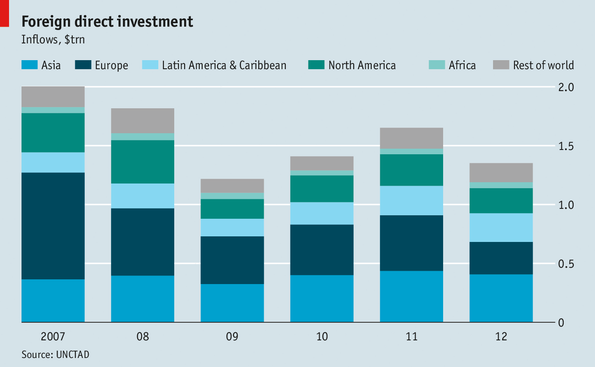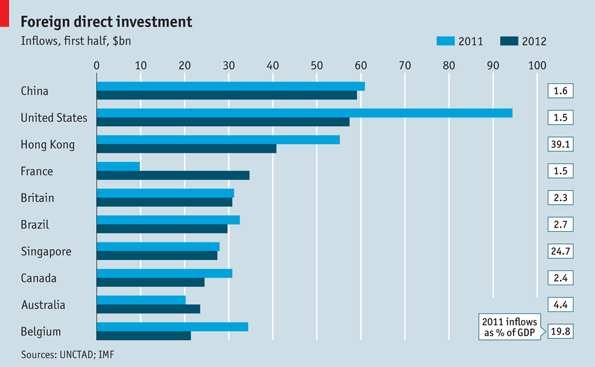FDI – Foreign Direct Investment
Post on: 9 Май, 2015 No Comment

An Overview
The Government of India has recently undertaken a comprehensive review of the FDI policy and associated procedures. As a result, a number of rationalisation measures have been undertaken which, inter alia include, dispensing with the need of multiple approvals from Government and/or regulatory agencies that exist in certain sectors, extending the automatic route to more sectors, and allowing FDI in newsectors. The latest changes in the FDI policy were notified vide Press Note 4 (2006 Series) .
As per the extant policy, FDI up to 100% is allowed, under the automatic route, in most sectors/activities. FDI under the automatic route does not require prior approval either by the Government of India or the Reserve Bank of India (RBI). Investors are only required to notify the concerned Regional Office of RBI within 30 days of receipt of inward remittances and file required documents with that office within 30 days of issue of shares to foreign investors.
ROUTES FOR FOREIGN DIRECT INVESTMENT (FDI)
a. Automatic Route
FDI up to 100% is allowed under the automatic route in all activities/sectors except the following which require approval of the government:
- Activities/items that require an Industrial Licence
- Proposals in which the foreign collaborator has an existing venture/tie up in India in the same field
- Proposals for acquisition of shares in an existing Indian company in some cases
- All proposals falling outside notified sectoral policy/caps or under sectors in which FDI is not permitted

b. Government Approval Route
All activities which are not covered under the automatic route, require prior Government approval. Areas/sectors/activities hitherto not open to FDI/NRI investment shall continue to be so unless otherwise notified by Government.
Role of D Batra & Co. (DBC)
DBC provides strategic advice on Foreign Direct Investment (FDI) in India. DBC has executed substantial FDI assignments for a number of foreign corporations, the assignments included detailed presentations viz. options available to a foreign entity for doing business in India; documenting cases for approval; obtaining of approvals and permissions from the Reserve Bank and/or Foreign Investment Promotion Board and/or Government of India for setting up of liaison, branch, project offices, wholly owned subsidiaries, JV companies etc.
DBC also advises on the methodology to be followed in regard to the management of foreign exchange.














